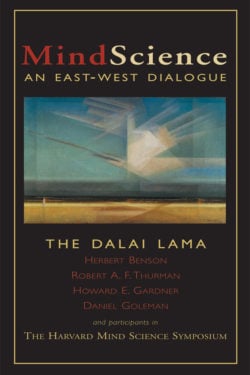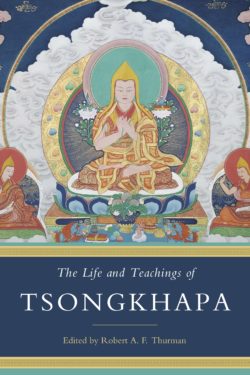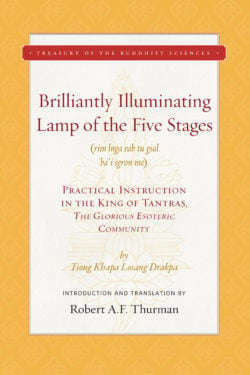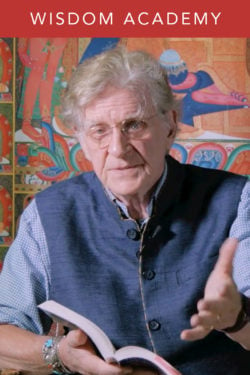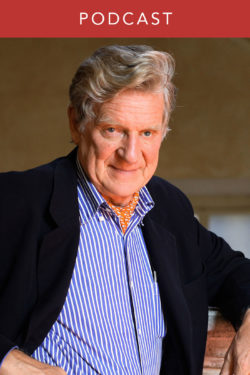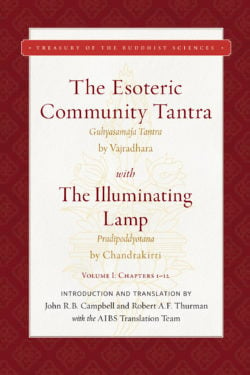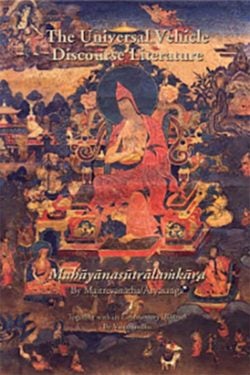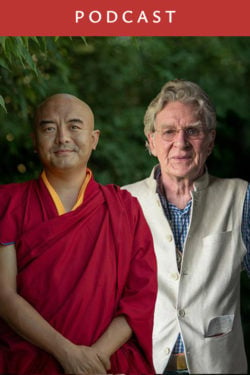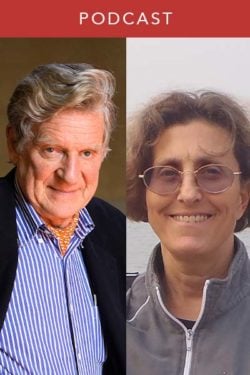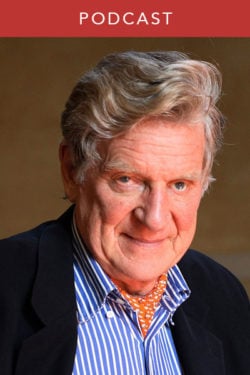Robert Thurman
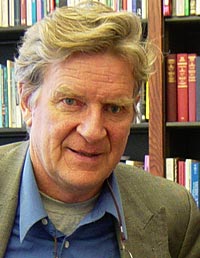
Robert Thurman is an American Buddhist author and academic who has written, edited, and translated several books on Tibetan Buddhism. He was the Je Tsongkhapa Professor of Indo-Tibetan Buddhist Studies at Columbia University, before retiring in June 2019. He held the first endowed chair in Buddhist Studies in the West. After education at Philips Exeter and Harvard, he studied Tibet and Tibetan Buddhism for almost thirty years as a personal student of His Holiness the Dalai Lama. He has written both scholarly and popular books, and has lectured widely all over the world. As President of the American Institute for Buddhist Studies, he convened the First Inner Science Conference with His Holiness the Dalai Lama at Amherst College in 1984. He is also a founding trustee of Tibet House New York.
Books, Courses & Podcasts
MindScience
What is the subtle relationship between mind and body? What can today’s scientists learn about this relationship from masters of Buddhist thought? Is it possible that by combining Western and Eastern approaches, we can reach a new understanding of the nature of the mind, the human potential for growth, the possibilities for mental and physical health?
MindScience explores these and other questions as it documents the beginning of a historic dialogue between modern science and Buddhism. The Harvard Mind Science Symposium brought together the Dalai Lama and authorities from the fields of psychiatry, psychology, neuroscience, and education. Here, they examine myriad questions concerning the nature of the mind and its relationship to the body.
The Life and Teachings of Tsongkhapa
A must-read for students of Tibetan Buddhism, The Life and Teachings of Tsongkhapa provides a thorough exploration of the great teacher’s wisdom.
In The Life and Teachings of Tsongkhapa, you’ll discover Tsongkhapa’s teachings on:
-
transcendental aspects of sutra, tantra, and insight meditation,
-
mystic conversations with great bodhisattvas,
-
deeply spiritual songs in praise of Manjushri and Maitreya,
-
and much more.
The anthology concludes with a number of intensely moving songs in praise of Tsongkhapa and his immeasurable contribution to Tibetan Buddhism by such realized and remarkable Tibetan Buddhists as the Seventh Dalai Lama, the Eighth Karmapa, Dulnagpa Palden, and Khaydrup Je.
This edition has been substantially corrected by Robert Thurman and contains a new introduction and a bibliography of all the works referenced in the text.
Brilliantly Illuminating Lamp of the Five Stages
The Brilliantly Illuminating Lamp of the Five Stages (rim lnga rab tu gsal ba’i sgron me) is Tsong Khapa’s master commentary on the perfection-stage practices of the Esoteric Community (Guhyasamāja), the tantra he considered fundamental for the “father tantra” class of unexcelled yoga tantras, as the primary source for the development of the “magic body” technique for attaining buddhahood. Based on Nāgārjuna’s Five Stages (Pañcakrama) and Āryadeva’s Lamp That Integrates the Practices (Caryāmelāpakapradīpa), as well as a vast range of other works by Indian and Tibetan scholars and adepts, it also reveals openly the experiences of the author, himself a master practitioner.
This blockbuster work of Jey Tsong Khapa opens a window on one of the most amazing, incredibly advanced attainments ever claimed to be possible for a human being within a single lifetime. The author explains in detail the relation between exoteric and esoteric teachings and practices on the path to complete enlightenment, with its seemingly superhuman awarenesses and abilities. He clarifies the interconnections between the various categories of secret tantras, inspires by showing how far-reaching are the systematic methods of positive personal transformation developed and taught in India and Tibet, and openly shows what this tradition considered possible, giving us a whole new vision of life’s meaning and a strengthened confidence in our horizon of opportunities. This bold and well-reasoned work presents a fascinating new way to understand our own body and mind, to manage more confidently our own life and death trajectories, and to rejoice in the sense of the extreme value of our human lifetime as a platform for realizing our personal evolutionary potential.
Sutra and Tantra: The Profound and Miraculous
In this extraordinary course, Professor Robert Thurman explains Tsong Khapa’s essential points for understanding the union of relativity and voidness, and the crucial instructions for the creation and perfection stages of Unexcelled Yoga Tantra. By guiding students through Tsong Khapa’s biography and his masterworks—Essence of Eloquence, Great Stages of Mantra, and Brilliant Illumination of the Lamp—Thurman brings to life and makes accessible the most profound aspects of Tsong Khapa’s teachings.
Thurman guides students in a penetrating survey of the exoteric and esoteric techniques and philosophies of Indo-Tibetan Buddhism according to Tsong Khapa’s systematization. Students will learn the inner science behind the tantric and sutric methods employed by countless scholars and adepts of India and Tibet on their paths to enlightenment, as well as how to apply such learning to their own personal practice of the path.
Robert Thurman: A Life in Buddhism
In this episode of the Wisdom Podcast, host Daniel Aitken interviews Robert Thurman, renowned scholar of Buddhism and friend of His Holiness the Dalai Lama.
In this rich conversation, we first find out why Robert originally dropped out of Harvard as a senior and went to India, and how Geshe Wangyal brought him to the Dalai Lama, who took on Thurman as a student. Robert was ordained by the Dalai Lama, but we hear why he never followed the path to becoming a geshe. He eventually returned to the U.S., disrobed, and met his wife-to-be Nena.
Robert shares how he came to become a professor of Buddhism and also talks about Geshe Wangyal’s clairvoyance in guiding his (Thurman’s) major life choices. We also hear his thoughts on secular Buddhism and mindfulness and his recommendations to those who have just discovered mindfulness on what they should explore next.
Robert then tells us his first impressions of the Dalai Lama (when His Holiness was just 29 years old) and his view on whether Buddhists are atheists. He reflects on the state of Buddhism today in the U.S., what he considers his main life work to be.
Robert and Daniel’s conversation covers much more, including some of the revolutionary ways that certain scientists are talking about religious and spiritual experiences and how to find a genuine teacher, and what to do when a teacher turns out to be corrupt.
The Esoteric Community Tantra with The Illuminating Lamp
This volume is a translation of the first twelve chapters of The Glorious Esoteric Community Great King of Tantras (Śrī Guhyasamāja Mahā-tantra-rāja), along with the commentary called The Illuminating Lamp (Pradīpoddyotana-nāma-ṭīkā), a commentary in Sanskrit on this tantra by the seventh-century Buddhist intellectual and tantric scholar-adept Chandrakīrti. Regarded by Indo-Tibetan tradition as the esoteric scripture wherein the Buddha revealed in greatest detail the actual psycho-physical process of his enlightenment, The Esoteric Community Tantra is a preeminent text of the class of scriptures known to Indian Buddhist scholar-adepts as great yoga tantra, and later to their Tibetan successors as unexcelled yoga tantra. The Illuminating Lamp presents a system of interpretive guidelines according to which the cryptic meanings of all tantras might be extracted in order to engage the ritual and yogic practices taught therein. Applying its interpretive strategies to the text of The Esoteric Community Tantra, The Illuminating Lamp articulates a synthetic, “vajra vehicle” (vajrayāna) discourse that locates tantric practices and ideals squarely within the cosmological and institutional frameworks of exoteric Mahāyāna Buddhism.
The Universal Vehicle Discourse Literature (Mahāyānasūtrālaṁkāra)
The Universal Vehicle Discourse Literature (Mahāyānasūtrālaṃkāra) was transmitted from the bodhisattva Maitreyanātha to Āryā Āsaṅga, the fourth-century Indian Buddhist scholar-adept. The most foundational of the set of the famous Five Teachings of Maitreya, the Discourse Literature is considered the wellspring of what the Tibetans call the “magnificent deeds trend of the path,” the compassion side, which balances the “profound view trend of the path,” the wisdom side. The Discourse Literature is also considered to be metaphysically aligned with and foundational for the Idealist (Vijñānavādin) school of Mahāyāna thought. Translated from Sanskrit, Tibetan, and Chinese by Lobsang Jamspal, Robert Thurman, and the AIBS team, the present work contains a fully annotated, critical English rendition of the Discourse Literature along with its commentary (bhāṣya) by Āsaṅga’s brother, Vasubandhu. It also includes an introduction covering essential historical and philosophical topics, a bibliography, and a detailed index. This long-awaited work is the founding cornerstone of the AIBS Treasury of the Buddhist Sciences series.
Yongey Mingyur Rinpoche And Robert Thurman: Buddhism in Daily Life in Conversation with Two Great Masters (#210)
This episode of the Wisdom Podcast, recorded live as a Wisdom Dharma Chat, is presented in collaboration with Tergar International and Tibet House US, featuring special guests Yongey Mingyur Rinpoche and Robert Thurman. In this special episode, Yongey Mingyur Rinpoche and Professor Robert Thurman come together for a rich and wide-ranging conversation on the practical application of Buddhist teachings in everyday life. With clarity, warmth, and humor, they explore tantric practice, the nature of Buddha’s potential, and the central role of meditation in transforming the mind. This episode concludes with a guided meditation from Rinpoche.
Listen as Rinpoche and Professor Thurman, along with host Daniel Aiken, discuss:
- Buddha nature and the role and value of meditation in everyday life;
- the modern misunderstanding of Buddhism;
- the importance of compassion;
- Buddhism’s place in the future of AI; and
- much more!

Meet Our Guests
 Yongey Mingyur Rinpoche
Yongey Mingyur Rinpoche
Mingyur Rinpoche is a world-renowned meditation teacher with personal experience of anxiety and panic attacks, which he suffered from throughout his childhood and into his teenage years, when he learned to transform his panic through meditation.
Born in Nepal in 1975, Mingyur Rinpoche began to study meditation as a young boy with his father, Tulku Urgyen Rinpoche, himself a well-respected Buddhist teacher.
As a child he became interested in contemporary science through conversations with scientists who were visiting his father, and as he grew older he began to collaborate with neuroscientists and psychologists, including Richard Davidson and Antoine Lutz at the University of Wisconsin, on research projects that study the effects of meditation on the brain and the mind. As the head of the Tergar Meditation Community, Mingyur Rinpoche supports groups of students in more than thirty countries, leading workshops around the world for new and returning students every year.
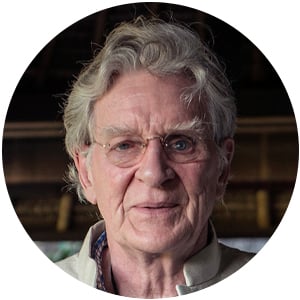 Robert Thurman
Robert Thurman
Bob Thurman, known in the academic circles as Professor Robert A.F. Thurman, is a talented popularizer of the Buddha’s teachings and the first Westerner Tibetan Buddhist monk ordained by His Holiness the Dalai Lama,
A charismatic speaker and author of many books on Tibet, Buddhism, art, politics and culture, Bob was named by The New York Times the leading American expert on Tibetan Buddhism, and was awarded the prestigious Padma Shri Award in 2020, for his help in recovering India’s ancient Buddhist heritage. Time Magazine chose him as one of the 25 most influential Americans in 1997, describing him as a “larger than life scholar-activist destined to convey the Dharma, the precious teachings of Shakyamuni Buddha, from Asia to America.”
As part of his long-term commitment to the Tibetan cause, at the request of H.H. the Dalai Lama, Bob co-founded Tibet House US in 1987 with Tenzin Tethong, Richard Gere, and Philip Glass, a non profit organization based in New York City and dedicated to the preservation and renaissance of Tibetan culture.
Robert Thurman & Susan A. Landesman: The Tārā Tantra (#156)
This episode of the Wisdom Podcast, recorded live as a Wisdom Dharma Chat, features Susan A. Landesman interviewed by Prof. Robert Thurman and host Daniel Aitken.
Susan A. Landesman, independent scholar and educator in New York City, is the author and translator of “The Tārā Tantra: Tārā’s Fundamental Ritual Text (Tārā-mūla-kalpa),” “Goddess Tārā: Silence and Secrecy on the Path to Enlightenment,” “Tara” (in the Oxford Bibliographies), and “The Tārā Tantra: Part II: The Uttara-tantra” (forthcoming). Having completed her doctorate in Indian and Tibetan languages and cultures at Columbia University, she specializes in Indo-Tibetan Buddhism, Tibetan art, and women in Buddhism.
Robert Thurman is an American Buddhist author, academic, and former Je Tsongkhapa Professor of Indo-Tibetan Buddhist Studies at Columbia University, before retiring in June 2019. Graduate of Philips Exeter and Harvard, he studied Tibet and Tibetan Buddhism as a personal student of His Holiness the Dalai Lama. He has lectured widely all over the world, is President of the American Institute for Buddhist Studies, and is also a founding trustee of Tibet House New York.
Susan, Robert, and Daniel discuss:
- Susan’s background in visual arts and pathway to Tibetan Buddhism with Prof. Alex Wayman;
- translating with Geshe Lobsang Jamspel at Columbia and her dissertation on the Tārā Tantra;
- the vivid, inspiring imagery of the tantras;
- Tārā’s important role as a Buddha and enlightened protector;
- Susan’s upcoming translation “The Tārā Tantra: Part II: The Uttara-tantra;”
- contemporary Tibetan artist Samten Dakpa;
- and much more.
 Remember to subscribe to the Wisdom Podcast for more great conversations on Buddhism, meditation, and mindfulness. And please give us a 5-star rating in Apple Podcasts if you enjoy our show—it’s a great support to us and it helps other people find the podcast. Thank you!
Remember to subscribe to the Wisdom Podcast for more great conversations on Buddhism, meditation, and mindfulness. And please give us a 5-star rating in Apple Podcasts if you enjoy our show—it’s a great support to us and it helps other people find the podcast. Thank you!
Robert Thurman: Mind, Self, and Reality (#123)
This episode of the Wisdom Podcast, recorded live as a Wisdom Dharma Chat, features a conversation with renowned translator and scholar Robert Thurman. Dr. Thurman and host Daniel Aitken cover topics such as the not-self; the nature of nirvana; how we try to conceive ultimate reality and its true nature; understanding the importance of negation; and much more.

Remember to subscribe to the Wisdom Podcast for more great conversations on Buddhism, meditation, and mindfulness. And please give us a 5-star rating in Apple Podcasts if you enjoy our show—it’s a great support to us and it helps other people find the podcast. Thank you!

